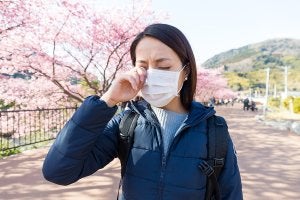More than 50 million Americans suffer from allergies, which means that spring is a difficult time for many of us. If you find yourself sniffling, sneezing, and fighting off other common allergy effects, you should know that there are ways to alleviate your symptoms. If your eyes are consistently dry, you should seek out dry eye treatment at an eye care center near Derry, Londonderry, and Windham. Here are some other tips for dealing with allergy season.
Start your allergy medicine early. For most allergy sufferers, medication is essential to surviving allergy season. If your allergies are extreme, try starting to take your medicine a few weeks before allergy season begins. This gives the medicine time to take full effect by the time you begin to encounter allergens in the air, and it can significantly reduce your allergies. 
Keep pollen out of your home. If pollen makes you sneeze when you step outside, imagine how you’ll feel if pollen is drifting through your house. During allergy season, it’s best to keep windows closed as much as possible. Instead, run your air conditioner—after checking the air filter to make sure it’s not clogged with dust. You might also change into different clothes when you get home, and leave your shoes by the door.
Wear a mask outdoors. If you can’t go outside without breaking into a sneezing fit, a surgical mask to protect you from breathing in pollen may be the answer. While you probably won’t need to wear a mask for running errands or driving to work, a mask may come in handy if you are doing chores in your yard or even taking a long walk.
Visit your eye doctor. Dry eye has been linked to allergy season, with eye doctors reporting that they see more cases in spring than at any other time of year. If you notice any of the symptoms of dry eye—including redness, itchiness, and tearing up—it’s time to visit an eye clinic for professional care.

